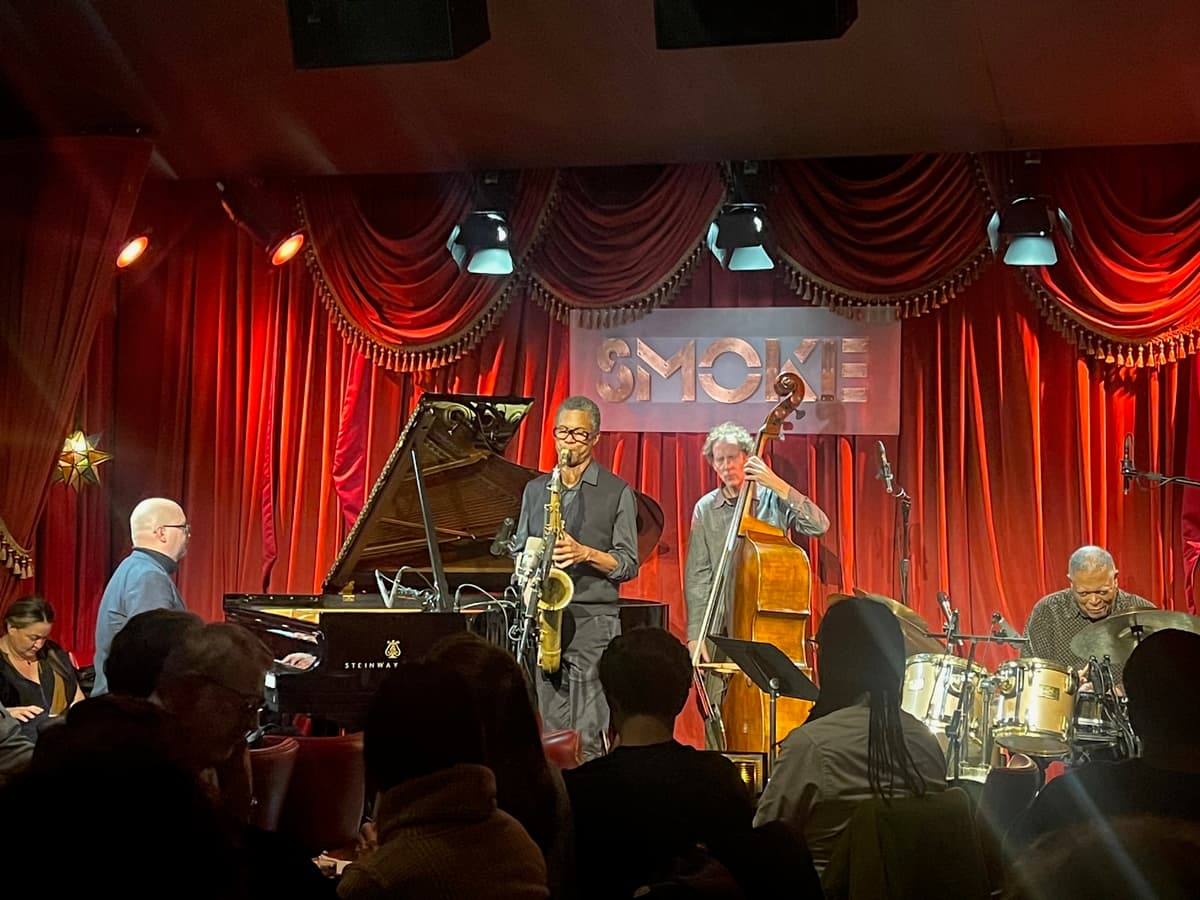Billy Hart’s Riveting Jazz Quartet, at Smoke This Weekend, Is Thoughtful Without Being Overly Intellectual
Drummer Billy Hart has played every kind of jazz there is, from the mainstream modernism of Wes Montgomery and the Montgomery Brothers to the soul jazz of Jimmy Smith and Eddie Harris.

Billy Hart Quartet with Ethan Iverson, Mark Turner, and Ben Street
Smoke
Through Sunday, December 10
Drummer Billy Hart, who turned 83 last week, made his first documented appearance on a recording in 1961. In the 62 years since then, he’s played every kind of jazz there is, from the mainstream modernism of Wes Montgomery and the Montgomery Brothers — as well as the great guitarist’s later, more jukebox-oriented sides — to the soul jazz of Jimmy Smith and Eddie Harris, the more avant-garde approach of Pharoah Sanders, and, famously, such high-powered fusionistas as Herbie Hancock and Joe Zawinal.
So what kind of music does he choose to make when he’s the leader and calling the shots? His current ensemble, which recorded its first of three albums, “Quartet” in 2005, costars pianist Ethan Iverson, tenor saxophonist Mark Turner, and bassist Ben Street, is notable both the brand of music that it plays as well as what it doesn’t play.
The quartet’s music is thoughtful, without being overly intellectual and it has a sound all of its own, even while all four of the members still maintain their own identities within it. There’s no one central dominant force, either as player, musical director or composer that steers the ship, so to speak — this is truly a collective, in which everybody contributes various compositions — and yet it still has a cohesive whole. It does not sound like a “drummer’s band,” if that is indeed a thing, and yet it is still a very strongly rhythmic group.
Their second set, the late show on Thursday, of a four-night, eight-show run at Smoke, including three dedicatory pieces to iconic musicians, starting with Mr. Turner’s “Sonnet for Stevie,” referring to Wonder, one for John Coltrane, the latter titled after the Jazz Messiah’s self-chosen spiritual name, “Ohnedaruth,” and one for Sonny Rollins. There also were two more personal dedications, one for his daughter, and another titled “Duchess,” the family nickname for his grandmother.
As a drummer-leader, Mr. Hart keeps the beat going, but like his forebear, Roy Haynes, he maintains rhythmic order and drives the band in the right direction without the need to call attention to himself with a lot of drum solos. With Mr. Hart behind the wheel, the two primary soloists, Mr. Turner and Mr. Iverson, are thereby empowered to fly off in all kinds of unexpected directions, and try things they couldn’t get away with without the solid support of Mr. Hart and Mr. Street.
The piece for Mr. Hart’s daughter began exotically with the leader using mallets to make his trap kit sound like tympani — an intro that was somehow both quasi-African and semi-classical. Mr. Iverson, who was repeatedly introduced by the leader as, “our eloquent pianist,” then played an intriguingly rambling solo, repeating a short sequence of notes in a way that suggested a ball rolling down a slowly sloping hill, hitting many a bump along the way.
Mr. Turner, who continues to hold my attention as one of the more original saxophone players of the current century; he joined Mr. Iverson with a series of phrases that sounded like he was steadily ascending uphill, rather than tumbling down, yet the two statements fit together perfectly.
The foursome held the packed house riveted — assisted by the superior audio and generous sightlines of the room — even though nearly everything they played was in the same medium tempo; something I’ve always felt about Mr. Turner, like Lee Konitz and Warne Marsh before him, is his skill at sustaining our attention without necessarily having to play loud or fast.
Where “Ohnedaruth” was contemplative and tranquil, like an extension of Coltrane’s “Naima,” the piece for Sonny Rollins, the last number of the set was the only comparatively faster and louder tune all evening — and the only one with a real drum feature, as well as an extended bass solo, at the start. This was Mr. Turner’s “Nigeria,” inspired by Mr. Rollins’s “Airegin”; in a sense, he reversed Mr. Rollins’s reversal by spelling those same letters in their usual order, forward, again.
The good news is, as Mr. Hart announced, the quartet is currently recording its fourth album. I have to admit, I was primarily there to hear Ethan Iverson and Mark Turner, but thanks to Ben Street and Billy Hart, I didn’t stop patting my foot all night long.

